A Valais entrepreneur’s Olympic ambitions
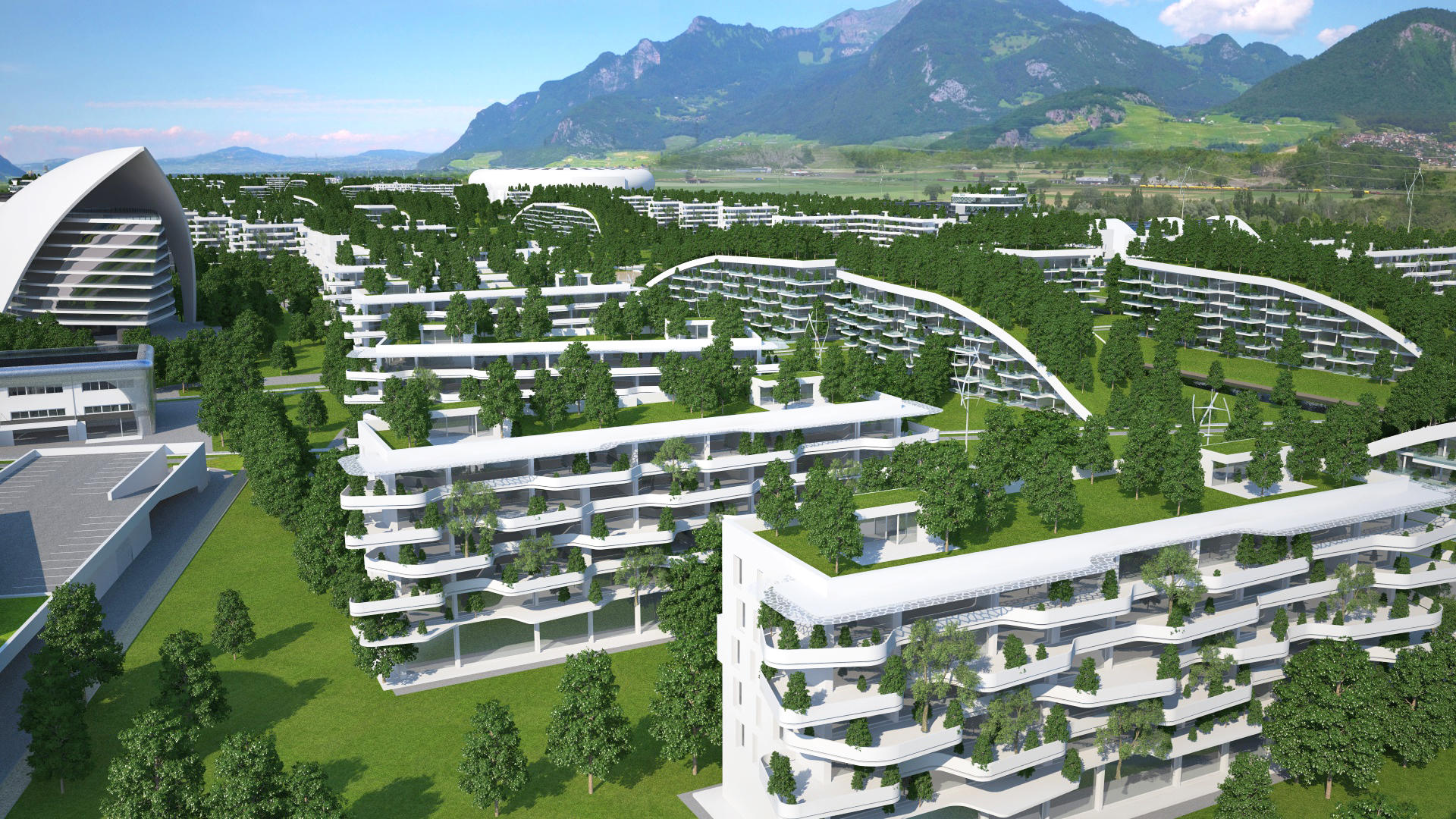
Is Switzerland ready for the gigantic logistical and financial challenge of hosting the Winter Olympics? swissinfo.ch interviews an entrepreneur from canton Valais who believes it is, and who has launched a controversial campaign to bring the games to Sion in 2026.
The Porte d’Octodure complex in Martigny houses both the administrative seat of FC Sion, the canton’s emblematic football club, and the architecture offices of Christian Constantin. For the past two years, the complex has also been home to an idea: the dream of bringing the Olympic Games back to Switzerland, which has not hosted them for nearly 70 years.
Never at a loss for ambitious – or, according to his critics, overly ambitious – projects, Constantin intends to transform an old Tamoil oil refinery site in the Valais municipality of Collombey-Muraz into an Olympic village… and in the future, into a green city.

After former FIFA president Sepp Blatter, Constantin is one of Valais’s most well-known locals. Over time, he’s rallied significant support for his Olympic project. On March 7, the executive committee of Swiss Olympic, Switzerland’s umbrella organisation for the Olympic Games, plans to launch a Swiss bid to host the massive event in winter 2026.
“Sion 2026: The games in the heart of Switzerland” would involve four cantons – Valais, Vaud, Bern and Fribourg – and 17 competition sites. But Constantin intends to unite the whole of Switzerland behind the Olympic banner.
Nevertheless, critics have been voicing their disapproval of the project. To those who accuse him of submitting Switzerland as an Olympic candidate to boost his architecture business, Constantin responds: “I want to give this dream to our young people, and to leave a legacy to future generations.”
swissinfo.ch: Christian Constantin, you are known for being passionate about football. What made you want to organise the Winter Olympics in Valais?
Christian Constantin: I am above all passionate about sport, and Valais has wanted to organise the Winter Olympics for 50 years. Sion’s failed candidacy in 2006 in favour of Turin generated a lot of disappointment. But 20 years later, the desire is still there. I am convinced that there will be space to organise authentic Winter Games in the region where winter sports were born. What could be better than a unifying project to bring value to this mountain region and its inhabitants?
An entrepreneur from Martigny, canton Valais, Christian Constantin has been president of FC Sion since the end of 2003. Prior to that, he also presided over the Valais club between 1992 and 1997. In his youth, he was a goalkeeper for FC Neuchâtel Xamax football club in Switzerland’s first division. As FC Sion president, Constantin has won the Swiss Cup seven times, and the Swiss Championship once. He is especially known for having fired numerous coaches. According to Le Temps newspaper, Constantin earns nearly CHF200 million a year by constructing commercial centres and luxury residences.
swissinfo.ch: Since the Winter Games in Sochi in 2014, or even the previous games in Beijing in 2012, “Olympic” has become synonymous with “gigantic”. Is Switzerland ready to host a sporting event of such proportions?
C.C.: You can’t compare Sochi 2014 with Sion 2026. In Russia, Vladimir Putin invested enormous sums to create an exceptional Olympics, creating a ski resort from scratch. In Switzerland, we have more than a century of winter sports experience and all the infrastructure already exists. By adopting the Olympic Agenda 2020, the International Olympic Committee (IOC) has clearly shown its intention to bring the games back to Europe and to realise them at a much more reasonable and sustainable scale. Our project corresponds perfectly with this vision.
swissinfo.ch: Before convincing the IOC, you will have to win over the people. The citizens of canton Graubünden have clearly said ‘no’ twice in the space of four years to the organisation of an Olympic Games. How are you going to do this?
C.C.: I think that we exaggerate the problem of the popular vote. The first essential step will be obtaining financial support from the Swiss government. By obtaining a commitment of CHF1 billion ($996 million), which was not used for the 2022 Olympic Games in Graubünden, we will be able to present the population with a very solid financial argument. By adding the CHF650 million guaranteed by the International Olympic Committee, and the receipts linked to TV and sponsoring rights, the operational budget of nearly CHF2 billion would practically be covered.
With the exceptions of a ski jump in Kandersteg and a speed skating rink in Aigle, no other credit will be necessary to construct new infrastructures. There should therefore be only one popular vote, which will be held in the canton of the host city, probably in the autumn of 2018. I am convinced that we will rekindle the Olympic flame among the people of Valais.
March 7 : Selection of a national project by the Swiss Olympic Executive Committee
April 11 : Ratification of the selection by a Swiss Olympic Extraordinary Assembly
Autumn 2017: Decision of the Swiss cabinet on federal support for an Olympic bid
Beginning of 2018 : Submission of Swiss candidacy to the International Olympic Committee
Summer 2019: Selection of a host city by the International Olympic Committee
February 2026: Opening ceremony of the Olympic Games
swissinfo.ch: The Sion 2026 campaign began in economic circles, and therefore from people who potentially have a direct financial interest in this candidacy. Don’t you worry about creating a certain mistrust in the population?
C.C.: You can’t stop jealous and envious people from expressing themselves. However, we should be glad that people are engaging with the project, which will have a positive impact on the economy, sport, and society in general. Not to mention the emotional aspect: imagine the pride that our athletes and young people will feel when the Swiss flag flies over our Alps!
swissinfo.ch: You wish to turn the former Tamoil refinery site at Collombey-Muraz into an Olympic village and a future green city. Don’t you see a conflict of interest with your role as vice president of the candidacy committee for Sion 2026?
C.C.: Absolutely not. As an entrepreneur, I feel an obligation to create events or places where improve their quality of life. I have already built projects worth a total of CHF3 billion, so a few hundred million more is not the issue. My goal today is to engage in a visionary project that will have a lasting impact on the region where I was born.
The Tamoil refinery is for sale, but before driving in the first nail, millions of francs will have to spent cleaning up the soil. Anyone is free to make an offer to buy it back.
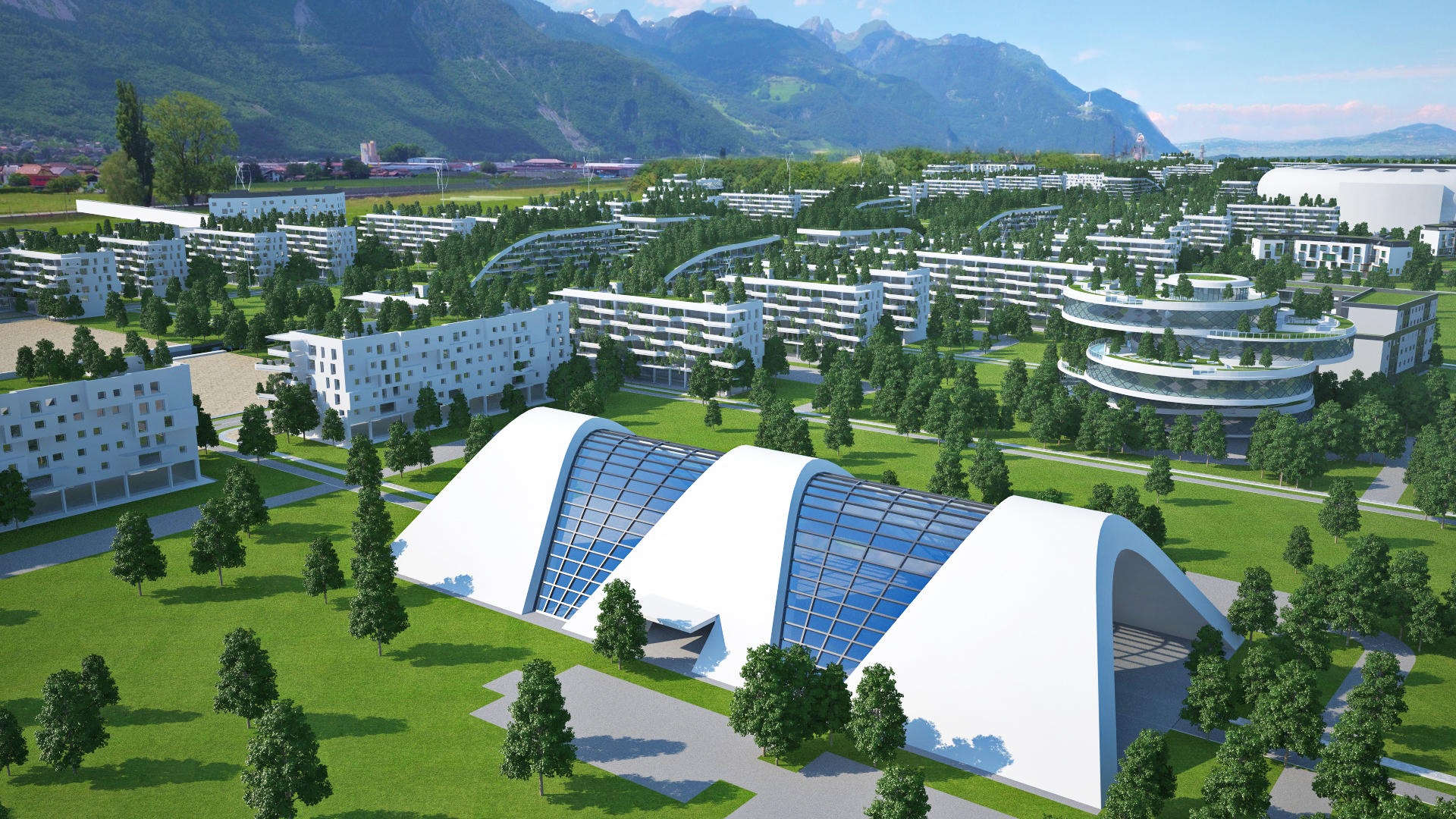
More
From an abandoned refinery to a green city
swissinfo.ch: Still, do you agree that the Olympic Games would accelerate this project?
C.C.: The Olympic Games will be an accelerator for the whole region, not just for this project. But it is true that without the games, it will take dozens of years to clean up the refinery site at Collombey-Muraz. The Olympic Games would allow the decommissioning process to be launched much sooner. The Olympic village would then serve as the basis for the construction of this green city of the future, which will be built step by step, over nearly a quarter century.
(Translated from French by Celia Luterbacher)

In compliance with the JTI standards
More: SWI swissinfo.ch certified by the Journalism Trust Initiative
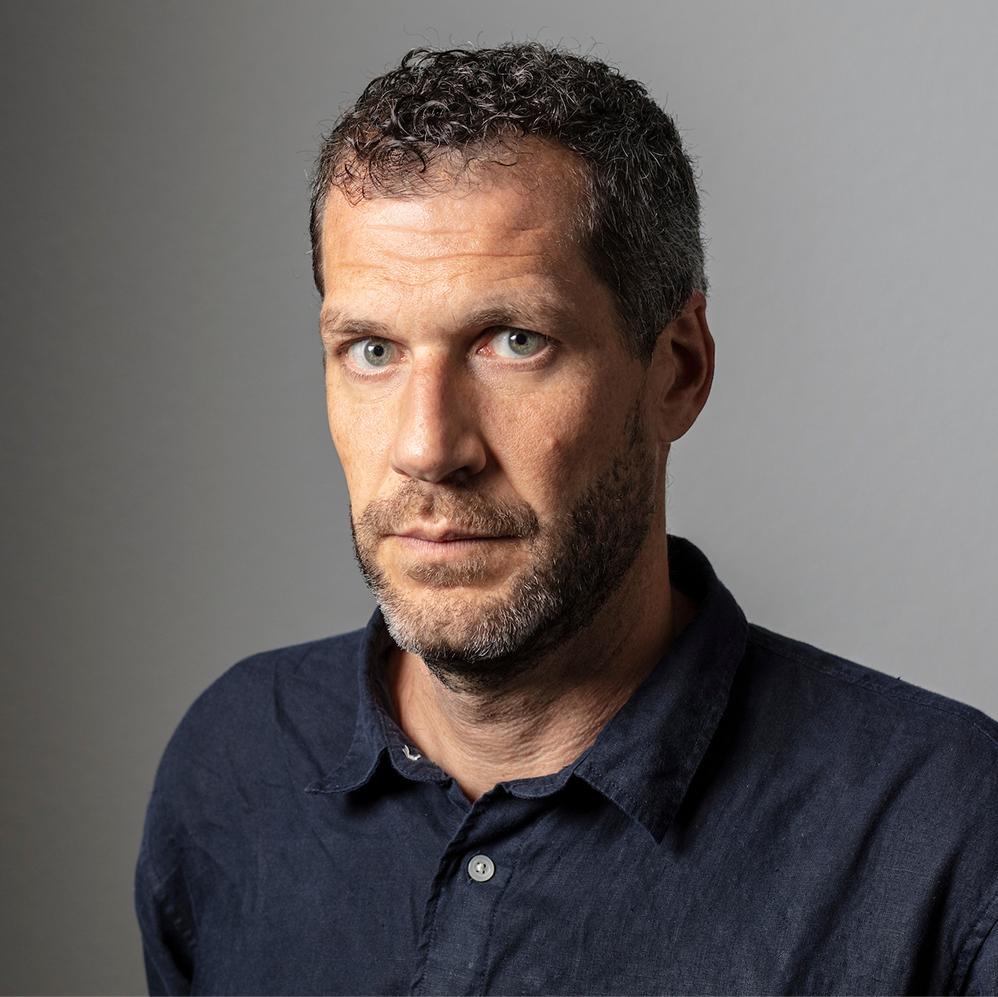
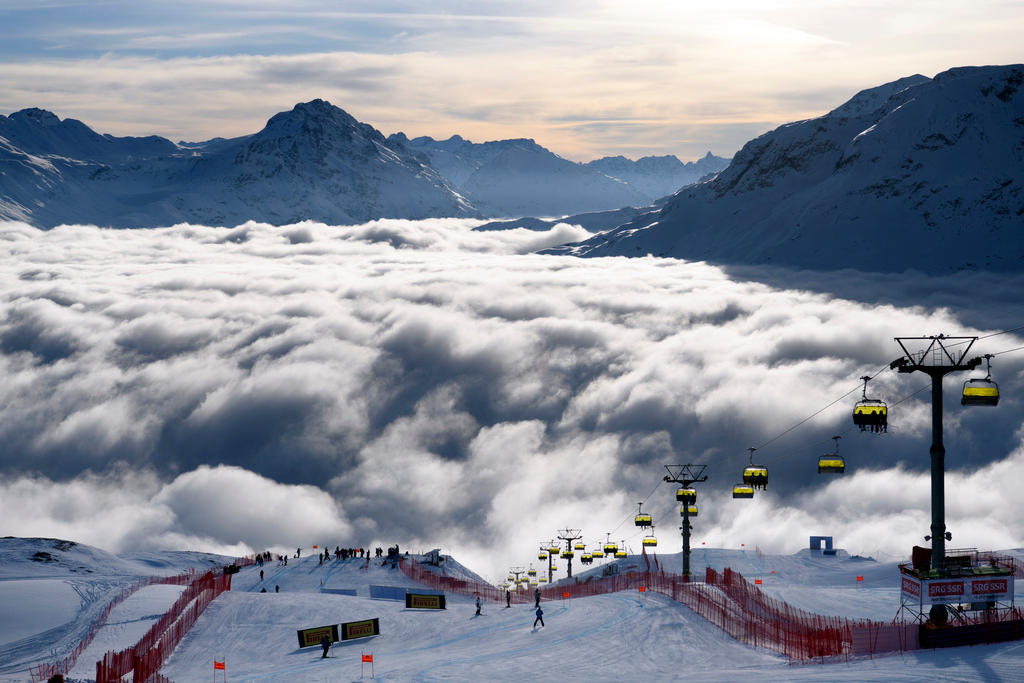
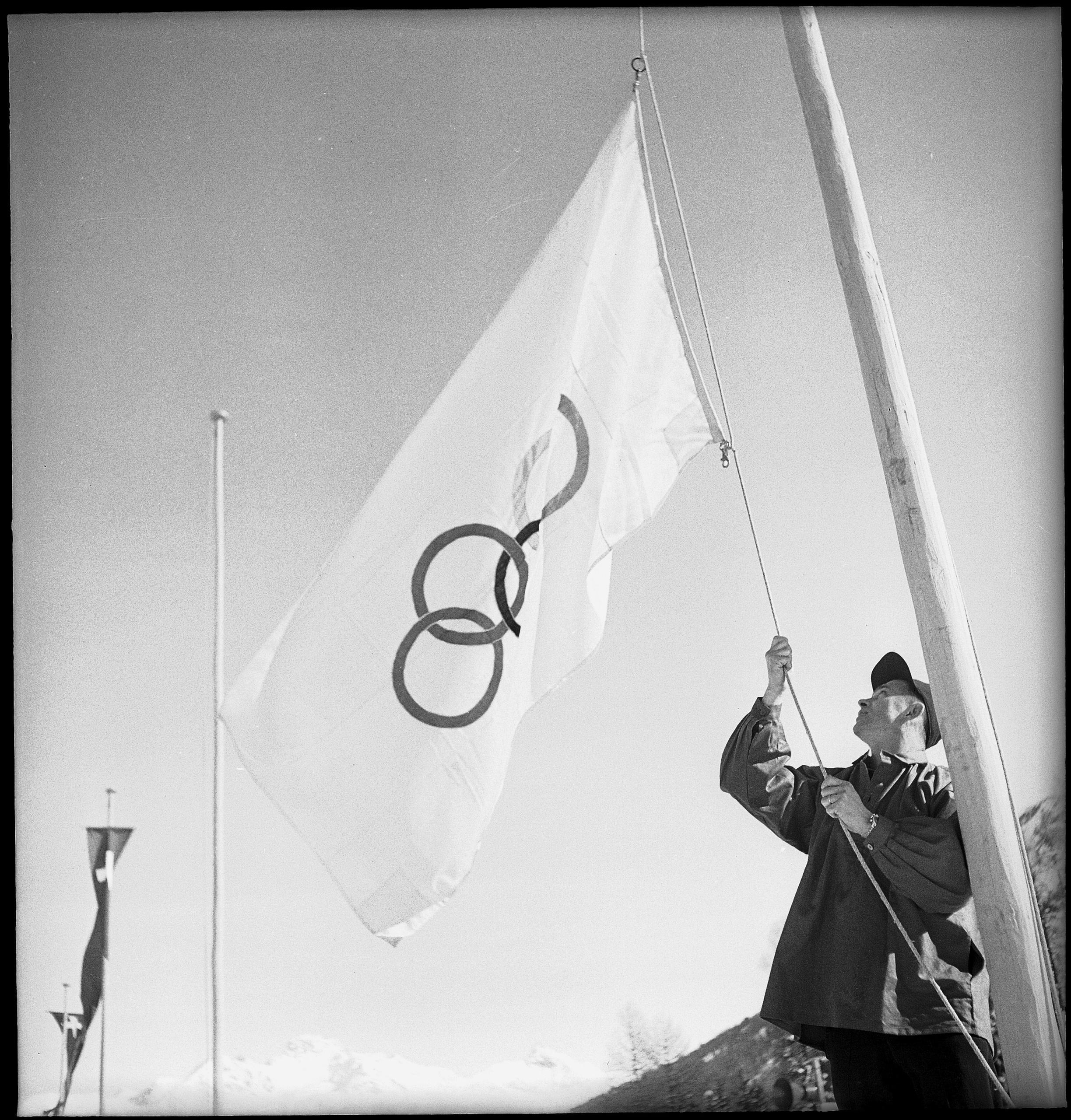
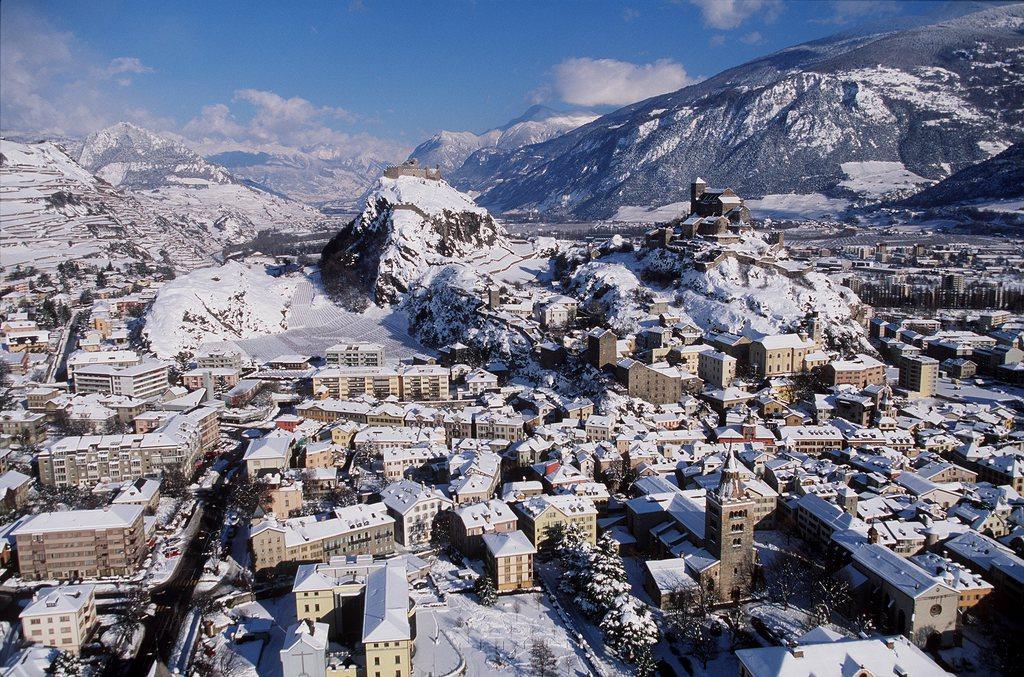
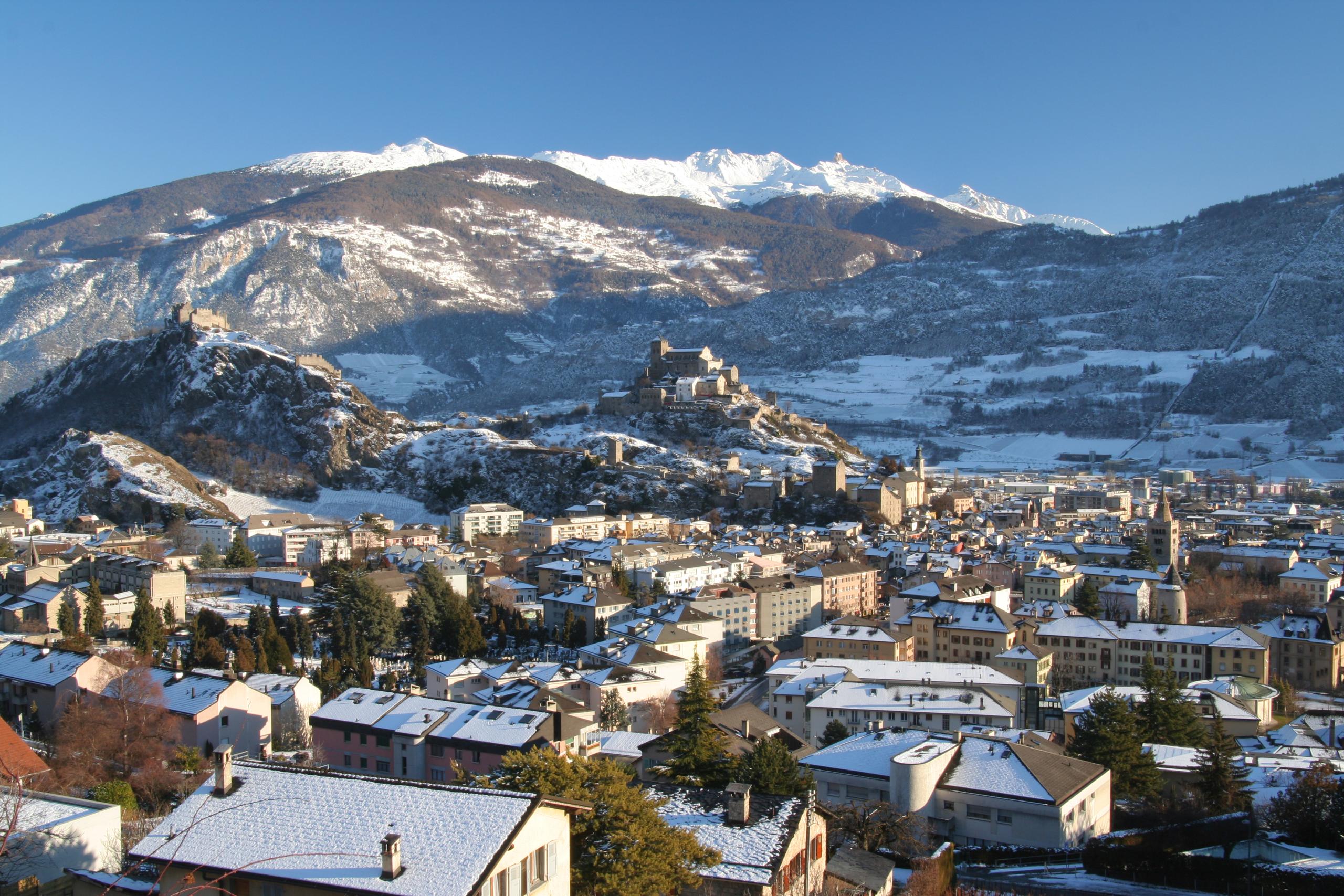
You can find an overview of ongoing debates with our journalists here. Please join us!
If you want to start a conversation about a topic raised in this article or want to report factual errors, email us at english@swissinfo.ch.